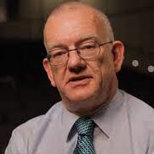Solving the housing crisis: the economics of Ronald Coase might have some answers
SUGGESTED



There is now something of a consensus among academics and commentators that the shortage of housing (and buildings of all kinds) is one of our most pressing problems. Many others such as welfare costs and low productivity are at least partly caused by the lack of house building and the consequent high price of housing. However, this has not as yet led to any political action. The problem of course is the conflict of interest between people who want to build, buy or rent new houses on the one hand, and people who do not want new development (especially on greenfield sites) on the other. The second group have so far been able to block any action and this does not seem likely to change.
But the work of Coase shows that this deadlock is quite simply unnecessary and avoidable if we only think about it in the right way, as Mark Pennington explains. Current policy on development is shaped by conventional welfare economics, where two people engaging in a transaction can impose costs on bystanders. So a developer and a house buyer can impose costs on existing home owners and people who wish to preserve the rural environment. This is dealt with by regulations through planning laws.
As Pennington explains, Coase rejects this model. For him the costs are reciprocal – there are two sides each of whom is potentially imposing costs on the other. One wants to build houses, the other to preserve space. To the extent that one side gets its way the other suffers a loss. What we actually have is not an externality or pollution but a conflict over how to use land.
For Coase the solution was to assign a property right to one of the two sides and then allow a process of bargaining to take place. If the first group have the right then those who do not want development would have to pay them not to do it. If the second, then the developers (and ultimately the buyers) have to pay for the right to develop. Crucially it does not matter which of these two we go for: in either case we will end up with the outcome that maximises total welfare so long as the bargaining process itself is not too costly.
Fortunately, in the case of land use the cost of negotiation is low. If we applied this model instead of a complex and costly planning procedure we would simply have a default right, either to build or not, which would have to be bought out. We could make one default apply in some parts of the country and the other in the rest (although this should not matter, it might be politically astute). There would then be a process of bargaining and through this we would actually find out how much people really valued one alternative or the other (as opposed to their asserting it – words are cheap).
The result would be development in some areas but not in others and this would reflect the actual value that people collectively placed on the two competing uses and the associated moral values. This would be different in different places (unlike the inflexible present system). As Pennington points out this would also be an ethically superior outcome because it would reflect ethical and value pluralism rather than having one group’s values imposed on the rest through the political process which is what we have now.
Ronald Coase was one of our greatest and most original economists. His ideas can bring solutions to problems and conflicts that otherwise seem insurmountable. His challenges to conventional wisdom is what the Institute of Economic Affairs aims to highlight through publishing a collection of essays on Coase’s economics.
Dr Steve Davies is the IEA’s Education Director. This article was first published on the LSE’s Politics and Policy blog.
2 thoughts on “Solving the housing crisis: the economics of Ronald Coase might have some answers”
Comments are closed.





Land taxation can achieve this by placing a cost on NIMBY.
Land taxation taxes land value, not buildings, so it encourages people who hold empty or undeveloped land to put it to its best use.
Unlike taxes on goods, land is not produced in a factory, so the supply of land will not drop if land tax is applied – land supply is fixed. It is also impossible to avoid – it cannot be hidden offshore tax havens.
Land tax places a cost on NIMBY because is NIMBYs success in blocking development in their area, their land value goes up and they are hit with more land tax. That seems entirely fair.
Land tax can capture the increase in value from large transportation projects, such as CrossRail, which is essentially taxpayer funds being thrown at private landowners to boost their private property’s value through no effort of their own.
Land Tax also has the approval of Economist Milton Friedman. In this video, Milton Friedman talks about the virtue of land value taxation. https://www.youtube.com/watch?v=yS7Jb58hcsc
The IEA should support the levying of a progressive land value tax on all land in the UK, and use the revenue to reduce other taxes such as company and income taxes.
If Ronald Coase is considered one of the Greatest and Most Original of our Economists of our age … then why was he never awarded an OBE? He was nominated several times for that honor and was passed over every year. As he lived to 102 years, there was ample time from his receiving the Nobel Prize in 1991 until his death in 2013 for that award to have been offered to him. Just wondering ….